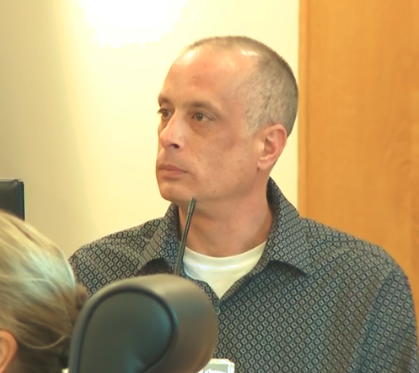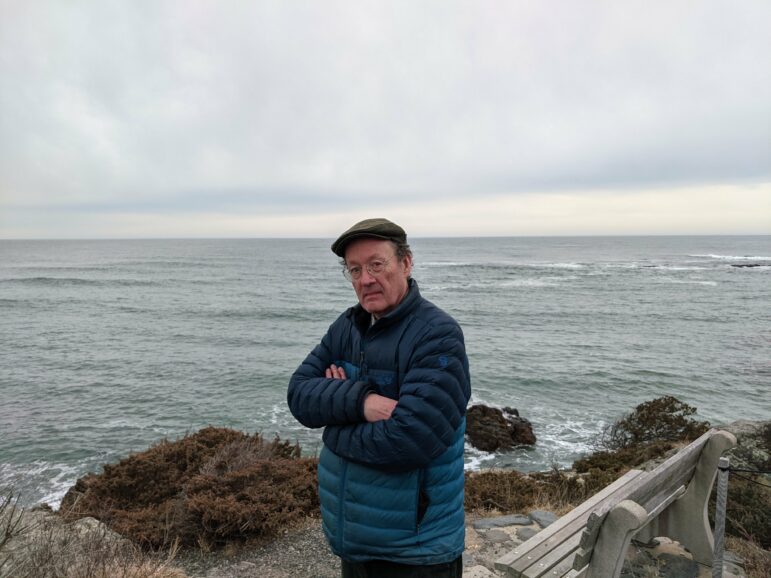
By GARRY RAYNO, InDepthNH.org
CONCORD – Another presidential primary filing period ends as the state readies to celebrate the 100th anniversary of the first-in-the-nation primary in 2020.
National political figures receive most of the media attention along with “characters” like Vermin Supreme. Others file to say they ran for president and even more to make a statement on climate change or alien spaceships that will save us.
For several primaries in a row, Billy Joe Clegg, a Mississippi minister, was the first in line to sign up at Secretary of State Bill Gardner’s office. He ran for president seven times and planned to run for an eighth time when he died of a heart attack in 1997.
He was a gentleman with a soft voice and big heart who ran as an independent, Democrat and Republican. He truly was tripartisan.
Michael Levinson, a Republican from Buffalo, New York, was always near the front of the line and had changing platforms he willingly discussed with the few early rising reporters who were also at Gardner’s office on opening day.
Noted New Hampshire political operative Michael Biundo many years ago held Pat Buchanan’s place in line on the first day back in 1992 when the columnist was challenging President George H.W. Bush in his bid for re-election.
Buchanan did not win the primary but did well enough and showed eventual Democratic nominee Bill Clinton how to find Bush’s soft white underbelly.
And there was Robert Haynes, who for a time lived in Manchester, and whose claim to fame was disarming a person near the White House. One time he took more than an hour to file his name including performing as several early political figures in the nation’s history as Gardner tried to hurry him up so other candidates could file at the old wooden desk of Rep. Stephen Bullock, who wrote the legislation creating the New Hampshire Presidential Primary.
Most of those candidates spoke to Gardner, his staff, and a few reporters when they filed.
The major candidates like Bernie Sanders, Elizabeth Warren, Pete Buttigieg, Joe Biden, Barack Obama, Donald Trump, Hillary and Bill Clinton, George W. Bush, John McCain, etc. appear with large entourages, lining the halls of the State House, filling Gardner’s office to overflowing with others waiting in State House Plaza to hear a few words from their chosen candidate.
Perhaps the biggest, most out-of-control filing in recent years was when Colorado Sen. Gary Hart, the frontrunner for the 1984 Democratic nomination signed up. He dropped out due to an alleged extramarital affair with Donna Rice, only to decide to rejoin the race on the last day to file.
Trump’s filing four years ago was almost as crazy, but not quite.
Gardner always ensures the candidates head to his back-room area to be questioned by reporters — mostly local — after filing.
CEO Steve Forbes bristled under questioning about his flat tax proposal, Lindsey Graham forcibly told reporters he was not a second-tier candidate, Hillary stayed on message no matter what the questions and McCain remained seated as long as the questions came.
As a reporter, you have a sense who is prepared for what lies ahead and who has more work to do before they are ready for prime time a few months in the future.
Sitting in Gardner’s back office with the presidential candidates is a lot like what the primary used to be before advertising executives took over the messages, national advertising campaigns and social media the go-to medium for information or misinformation about the candidates.
A candidate willing to bypass the talking points and shoot from the hip is rare today. Who can blame the candidates when everything they say is recorded on an I-phone by an opposition researcher or a kid willing to sell the video to the highest bidder.
The social media scrutiny has made all the candidates much more guarded, sticking to their talking points as their handlers try to protect them from all but their supporters.
The days of the mandatory random visits to Robie’s Country Store in Hooksett or the Cafe Vachon on Manchester’s West Side are over. Heck the Merrimack Restaurant in Manchester and Howard’s Restaurant in Colebrook are no more, and the first-in-the nation ballots are no longer counted at 12:01 a.m. at the Balsams Resort in Dixville Notch.
And the days of Jimmy Carter or Gene McCarthy coming out of nowhere to ride the New Hampshire bounce to the White House or end a president’s campaign are probably over.
However, most people would not have waged money Trump would eventually become President after he won the 2016 Republican primary, but he was a well-known celebrity when he entered the primary after taking a pass four years earlier.
Trump did not run a traditional campaign in New Hampshire four years ago. Instead of spending time on the ground meeting voters, he held several big rallies, a method he used successfully to win the election and he continues to employ today.
Unlike Ronald Reagan’s run for president in 1980, when he spent little time here meeting voters face-to-face but held several large events and moved on, it does not appear Trump’s method has changed the formula for running in New Hampshire.
Some complain the major candidates are not coming to New Hampshire like they once did, and that is probably true, but they still are coming.
With a wide-open field and nobody catching fire early, the candidates are being more selective about spending campaign money when races could cost tens of millions of dollars before they end in early June.
Unlike the “old days,” presidential campaigns begin after the last general election so many of the presidential candidates have been visiting the Granite State for two or three years not just the last six month before the voting.
The candidates’ number of appearances may not be as high as they once were, but the targeting of voters through computer generated lists turns out large, enthusiastic audiences that are routine.
Despite the enthusiasm, many are on alert due to real or perceived threats to the state’s vaulted status. They are on the look-out for state legislatures changing their primary date or Democratic or Republican party officials attacking the state’s ranking through rules.
This year Democratic presidential candidate Julian Castro shut down his campaign operation in New Hampshire claiming the calendar needs to change so more diverse states other than New Hampshire and Iowa open the selection process.
Castro has had trouble finding traction everywhere not just in Iowa and New Hampshire.
The New Hampshire Presidential Primary is not what it once was, and it should not be with the multitude of opportunities available to campaigns today.
The primary has to change with the times, and so far, the movers and shakers have kept it one step ahead of the hellhounds seeking to unseat New Hampshire.
And there is no reason to think anything will change in the near future because as long as the candidates believe New Hampshire is important, state legislatures and party rules will not make a difference.
So, enjoy seeing the presidential candidates while they are here and participate in the tradition that makes candidates respond to real voters in town halls, county fairs and auditoriums around the Granite State.
A lot of people will never have the opportunity.
Garry Rayno may be reached at garry.rayno@yahoo.com
Distant Dome by veteran journalist Garry Rayno explores a broader perspective on the State House and state happenings for InDepthNH.org. Over his three-decade career, Rayno covered the NH State House for the New Hampshire Union Leader and Foster’s Daily Democrat. During his career, his coverage spanned the news spectrum, from local planning, school and select boards, to national issues such as electric industry deregulation and Presidential primaries. Rayno lives with his wife Carolyn in New London. InDepthNH.org is New Hampshire’s only nonprofit, online news outlet dedicated to holding government accountable and giving voice to marginalized people, places and ideas.





